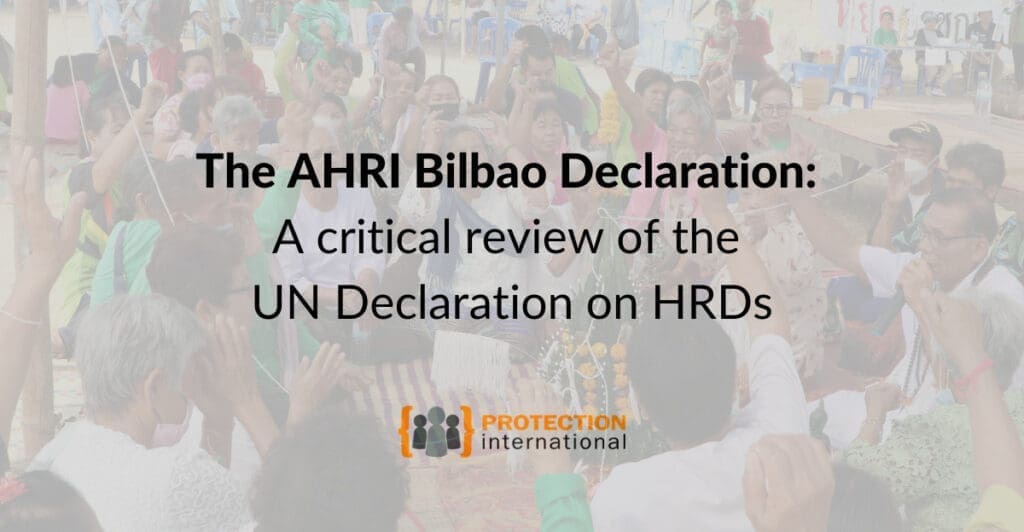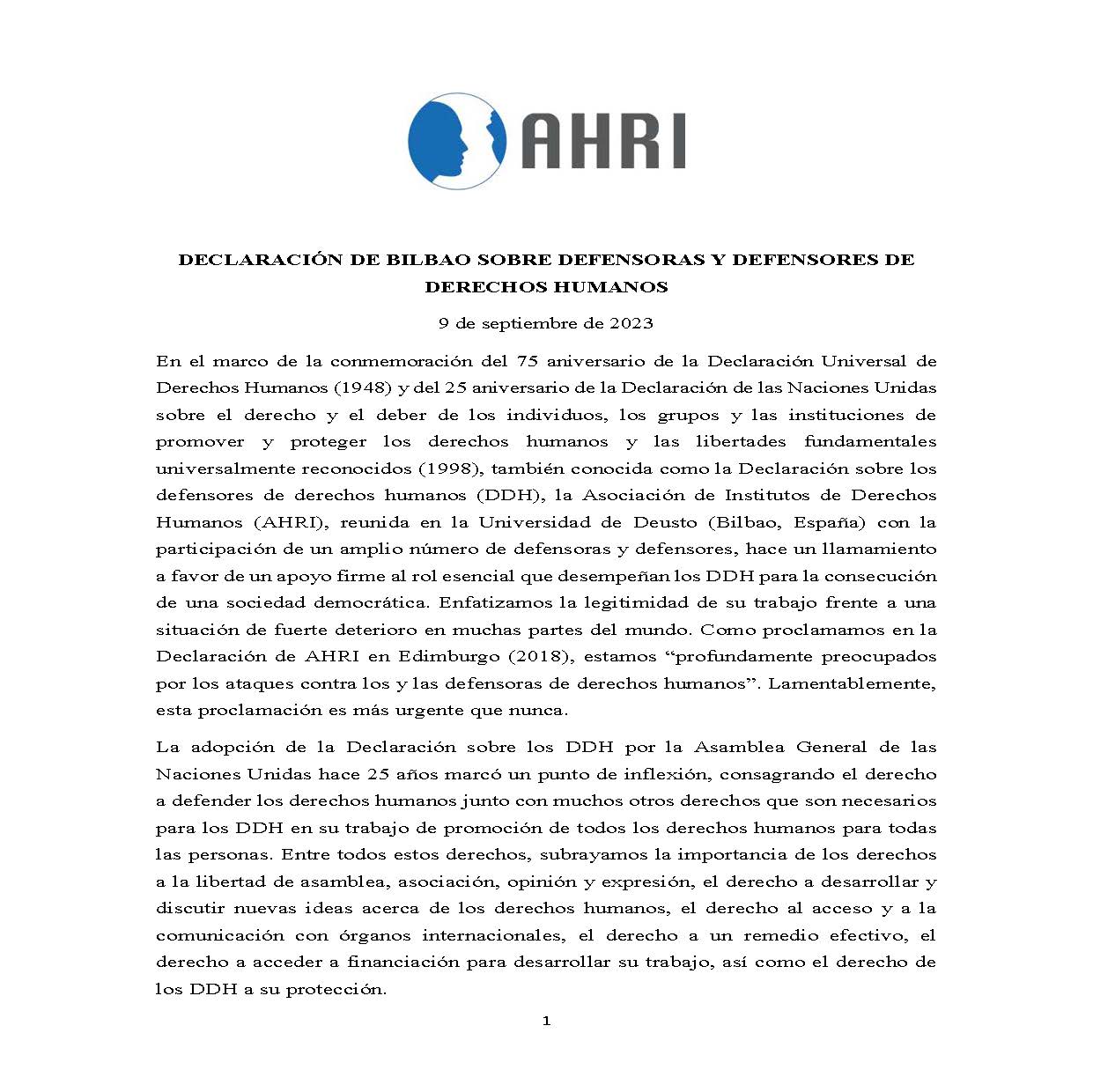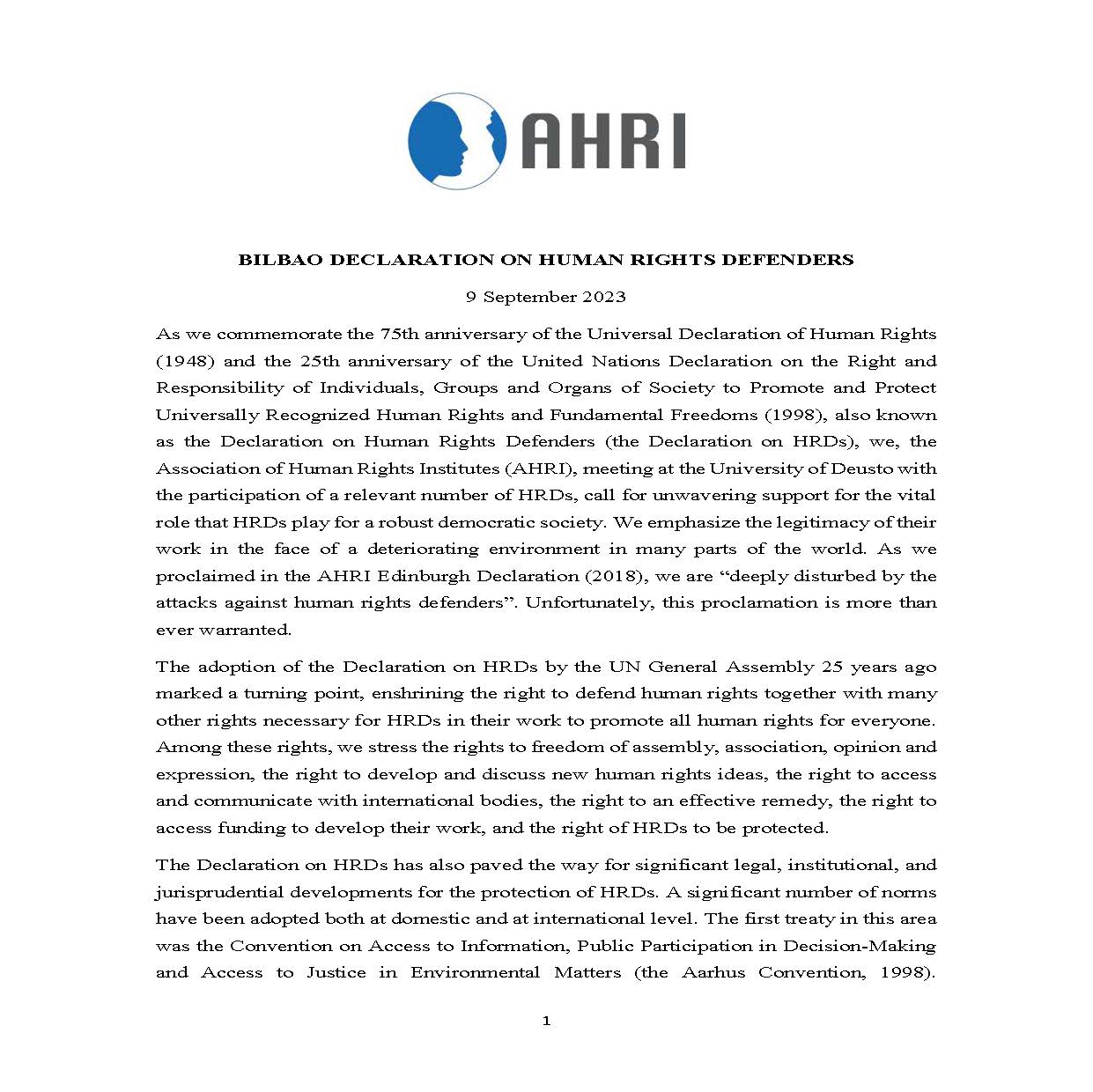In early September, Protection International participated in the 2023 AHRI Conference, hosted by the University of Deusto. A key outcome was the later-issued AHRI Bilbao Declaration, which serves as a critical review of the UN Declaration on Human Rights Defenders (HRDs), particularly spotlighting both its strengths and areas for improvement.
This year is significant for human rights milestones, making the AHRI Bilbao Declaration an important document. It coincides with the 75th anniversary of the Universal Declaration of Human Rights and the 25th anniversary of the UN Declaration on HRDs.
Issued 9 September 2023, the AHRI Bilbao Declaration reaffirms the principles in the UN Declaration on HRDs. It supports the UN Declaration by emphasizing the essential roles and rights of HRDs, including freedoms of assembly, association, opinion, and expression. Moreover, the Bilbao Declaration also emphasizes the impact of the legal developments it has inspired, such as the Aarhus Convention (1998) and the Escazú Agreement (2018). Additionally, it acknowledges the role of Special Rapporteurs in monitoring HRDs and enhancing their protection, further emphasizing the UN Declaration’s impact in shaping HRDs protection globally.
Nevertheless, it also identifies areas for improvement. While the UN Declaration provides a foundational framework for HRD protection, the HRDs, academics, and practitioners gathered in Bilbao scrutinized its limitations. They draw attention to areas needing urgent reform, serving not just as a reaffirmation of UN principles but also as a roadmap to improve HRD protection and security.
Critical Review and Areas for Improvement Proposed by the Bilbao Declaration
- Gaps and Limitations: The experts, and defenders gathered in Bilbao explicitly acknowledge the limitations of the UN Declaration on HRDs. While the UN Declaration serves as a foundational document, it falls short in addressing specific challenges such as the stigmatization and criminalization of HRDs. The Bilbao Declaration calls attention to these gaps, emphasizing the need for a more nuanced approach that takes into account the complex realities faced by HRDs in different parts of the world.
- Focus on Specific Groups: The UN Declaration on HRDs leaves unrecognized the unique threats faced by specific groups within the broader category of HRDs. These include women HRDs (WHRDs), LGTBIQ+ activists, environmental defenders, journalists, scholars, indigenous peoples’ defenders, child rights defenders, and defenders with disabilities. This focus is particularly important in the context of their contribution to global environmental justice and other specialized areas. The Bilbao Declaration advocates enhancing protection measures that tailor different groups.
- Non-State Actors: The UN Declaration’s scope should be extended to include non-state actors. The Bilbao Declaration argues that armed groups, private companies, and other stakeholders significantly impact the protection of HRDs and must be held accountable for their actions, thereby broadening the scope of responsibility and potentially enhancing the protective framework.
By addressing these gaps and limitations, a more inclusive framework could emerge.
Urgent Needs and Calls to Action
Through the previous points, the participants in the AHRI Conference stress the urgent need for an update of the UN Declaration on HRDs Amidst a surge in attacks and restrictions, they demand immediate action to ensure HRD safety. They urge international organizations, governments, and non-state actors to take responsibility for safeguarding HRDs and to promote an enabling environment for the right to defend human rights.
Download and read the Declaration, available in both English and Spanish.



 Spanish
Spanish
 English
English